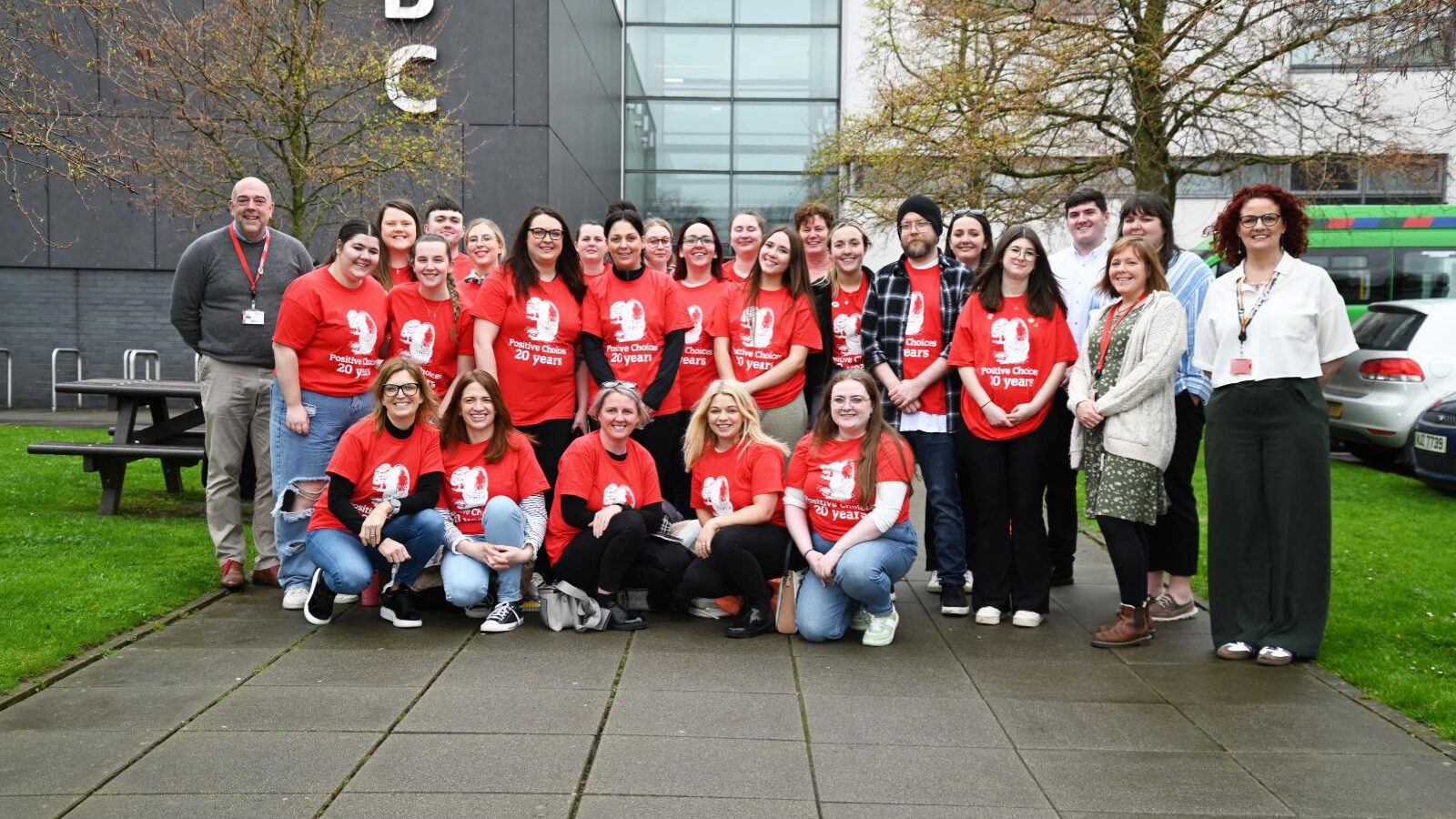Saba Salman: What is Positive Choices?
Helen Laverty: Positive Choices is a network and information exchange, social forum, support mechanism and two-day conference that for 20 years has brought together student nurses from across the five nations; England, Eire, Northern Ireland, Scotland and Wales.
The movement includes academics, movers and shakers in the learning disability world, people who have a learning disability and those who love them.
Positive Choices started life as an annual conference for student learning disability nurses but has evolved into a big, co-produced social community.
To date, around 10,000 people have attended the conferences. The 20th one was in April this year at Queen’s University Belfast.
Students at a national healthcare event were told they should have done mental health and that no one’s really interested in learning disability nursing
SS: Why did you found it?
HL: In 2004, a group of my students went to a national healthcare event: they were asked questions like “Why did you bother with learning disability?” and “Is it too late for you to change branch?” They were told they should have done mental health and that no one’s really interested in learning disability nursing.
So I asked on social media if anyone would help me organise one conference that would give a chance for learning disability nursing students to get together, be part of the majority not the minority, and celebrate what they do and the positive choices they have made. From that acorn came a movement for social change.
SS: What’s the aim of the conference?
HL: The aim has evolved. We started off just wanting to bring students together but at times it feels like a festival.
The conference has now become an umbrella for Positive Commitments (a similar event for qualified nurses) and Positive Voices, an advocacy conference providing a platform for the quieter voices in a a busy, noisy self-advocacy arena – this is about to run for a third year.
Our aim is always “together we are better”.
SS: Tell us about a good practice project linked to Positive Choices
HL: Positive Choices, the Makaton Charity and Health Education England ran a competition last year for an innovative communication resource. The aim was for Makaton to become more widespread within healthcare within both adult and children’s services.
Ellie Sims, who is a learning disability nursing student from the University of Nottingham, won the competition. She uses Makaton to communicate with her 10-year-old sister, who has Down syndrome.
She developed a document with simple signs and symbols for use by anyone working in healthcare, to enable them to communicate directly with patients with learning disabilities or communication difficulties.
Phrases in the document include “Hello my name is” and “Do you feel pain?” and “Are you
taking medication?”
The Makaton Charity produced the resource, which was launched at the Positive Choices conference last year and is now being rolled out across the UK.
SS: What are the future challenges in learning disability nursing?
HL: Essentially, the main one is to ensure no one is left behind and that all people are valued equally and not just in wider society – but we need to start with health and social care.
Helen Laverty is a registered learning disability nurse and a nurse teacher at the University of Nottingham





